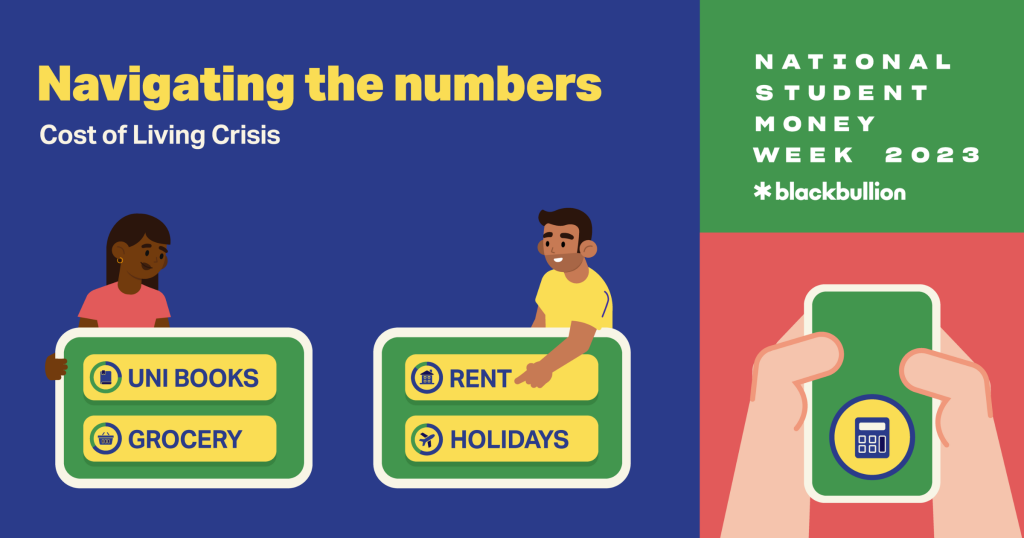
Our annual campaign, National Student Money Week, is returning for 2023! Given the ongoing cost of-living-crisis, we are focusing on supporting our fellow students about making the most out of our money. We – a current and a former Money Mentor – will share our experiences with our previous National Student Money Week campaigns and introduce you to this year’s campaign.
National Student Money Week 2021: Expect the Unexpected
In our 2021 campaign, we shared our tips and tricks on how students could go about facing an unexpected financial situation, from scams and housing to emergency funds. We enjoyed collaborating with King’s Positive Peers to virtually talk about our themes on Instagram live. Not only were we sharing information with students, but we too learned a lot about how to best prepare ourselves for unforeseen situations that could significantly affect our financial and mental health.
National Student Money Week 2022: Sustainable Spending
Throughout our 2022 campaign, we shared various blog posts on themes ranging from banking and cryptocurrency. Given the rise of digital revolution, more people have been using things like online banking and cryptocurrency. By doing independent research, our Money Mentors team sought to share some of the basic knowledge on these novel areas related to money. We enjoyed engaging with students on various money-related topics that are particularly relevant today!
National Student Money Week 2023: Navigating the numbers
This year, we are back on campus for a week, so drop by our stalls to play our games, win prizes and take away lots of free goodies! We will be there from 11am-3pm on the following days:
Monday 6th March: Sustainability (Bush House Arcade, Strand campus).
Tuesday 7th March: Look after yourself (Library Alcove, FWB, Waterloo campus).
Wednesday 8th March: Reducing costs and save (New Hunt’s House, Guy’s campus).
Live online Q&A: Ask a King’s Student Money Mentor.
Thursday 9th March: Extra support from King’s (Strand Reception, Strand campus).
Friday 10th March: Making cents of it all (Money Mentors will be giving out flyers and speaking with students in various campuses!).
Keep an eye on our Website, Instagram, Facebook, Twitter and Blog for further information on this fantastic campaign!
King’s Student Money Mentor Team
Part of Money & Housing Advice
The King’s Student Money Mentors blog shares our students’ personal experiences and thoughts on money-related topics. Any reference, opinions or recommendations on a particular company/brand are only the views of the student(s) who wrote the blog post. King’s College London, the Money & Housing Advice service and the Money Mentor project do not share the views in the blogs nor endorse any of the companies mentioned. Readers should conduct their own research before using any companies mentioned in our blog posts.


